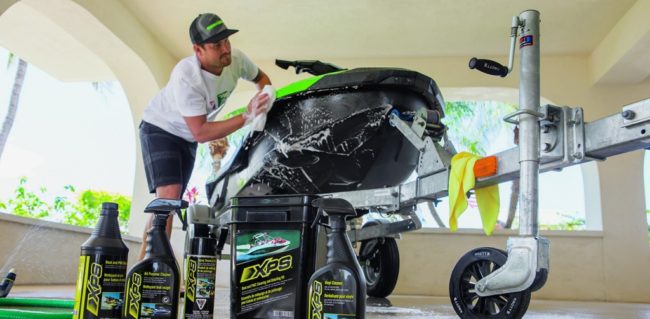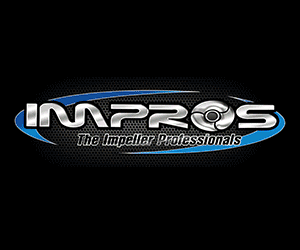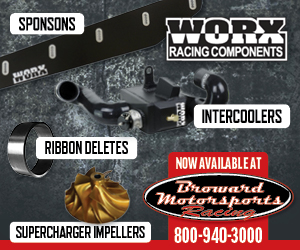
If you own a personal watercraft, you likely know that the effects of water meeting metal parts causes corrosion and rust. Salt water compounds this effect much faster than fresh water. If you ride in any ocean, salt water bay, or brackish body of water, it is definitely worth giving your watercraft some extra post-ride care so that it will last for years-to-come.
Due to the harmful effects saltwater plays on your craft’s metal components, cooling system, and electrical components, all manufacturers give their recommendations on how to care for your PWC after riding. There are many additional resources online that give excellent tips for beating salt water corrosion including one such article.
First of all, you should always flush your watercraft with fresh water via the flush port and according to the manufacturer’s instructions. You can even use a salt remover called Salt Away to help remove any residual salt deposits. Rinse off the entire exterior of the watercraft and even scrub with a high quality boat soap if desired. Don’t forget to spray up in your intake grate and all around the jet pump area.
Remove any engine access panels or seats and rinse the engine compartment with fresh water. Don’t forget to remove the drain plugs to allow the water to drain and leave the seat off for some time to allow everything to dry out as well as avoid mildew buildup. Invest in some quality corrosion inhibitor oil spray. Sea Doo and Yamaha make their own brand so you can look for these.
Give a light coating to your jet pump, drive shaft, and other metallic fasteners and linkages. You may give engine components a very light coating but avoid directly spraying hoses, motor mounts, gaskets, and other rubber materials as it can make them dry and brittle over time. Many of the electrical connectors will have insulating gaskets from the factory but every once in awhile, you may remove the connectors, coat with insulating grease such as corrosion block, and reconnect for some added protection.
Following these or any similar procedures as well as general precautions from individual manufacturers will ensure that you get many reliable hours out of your Personal Watercraft.






